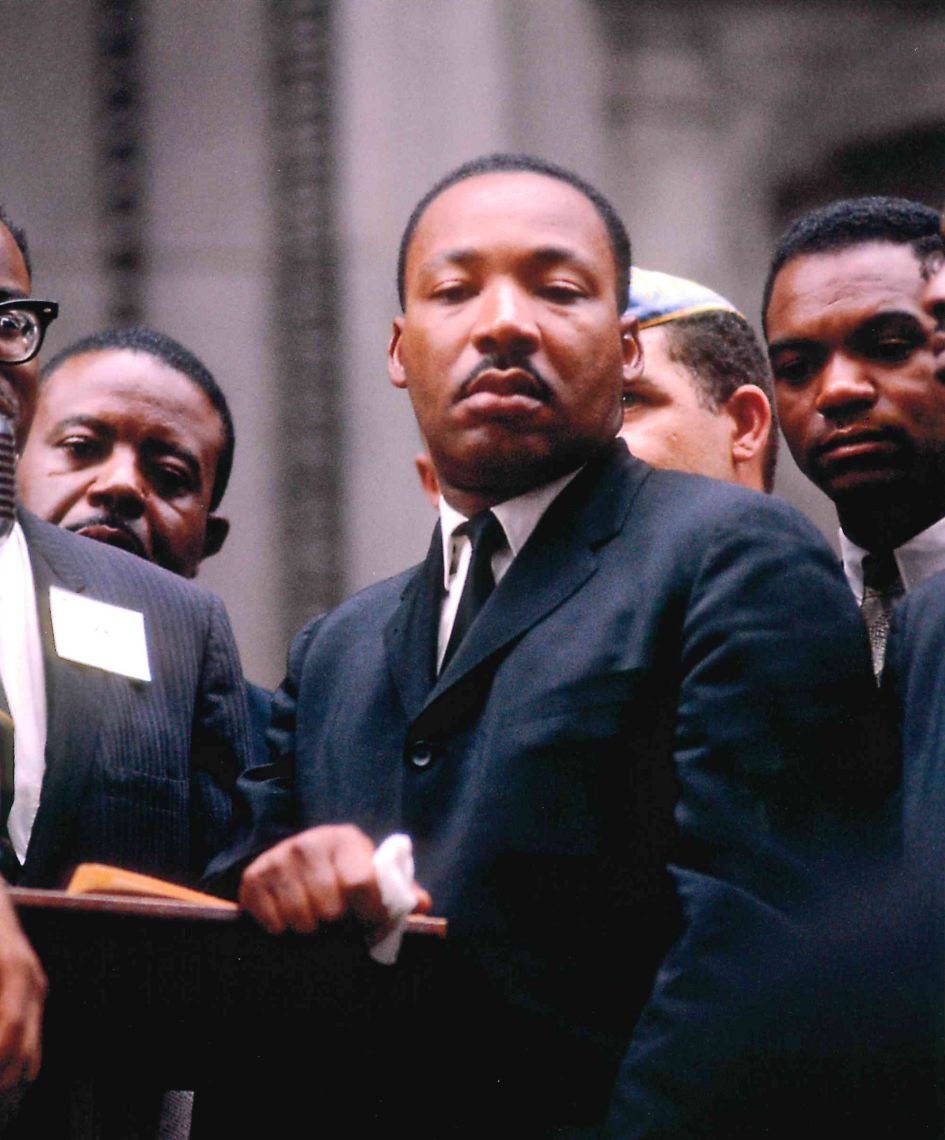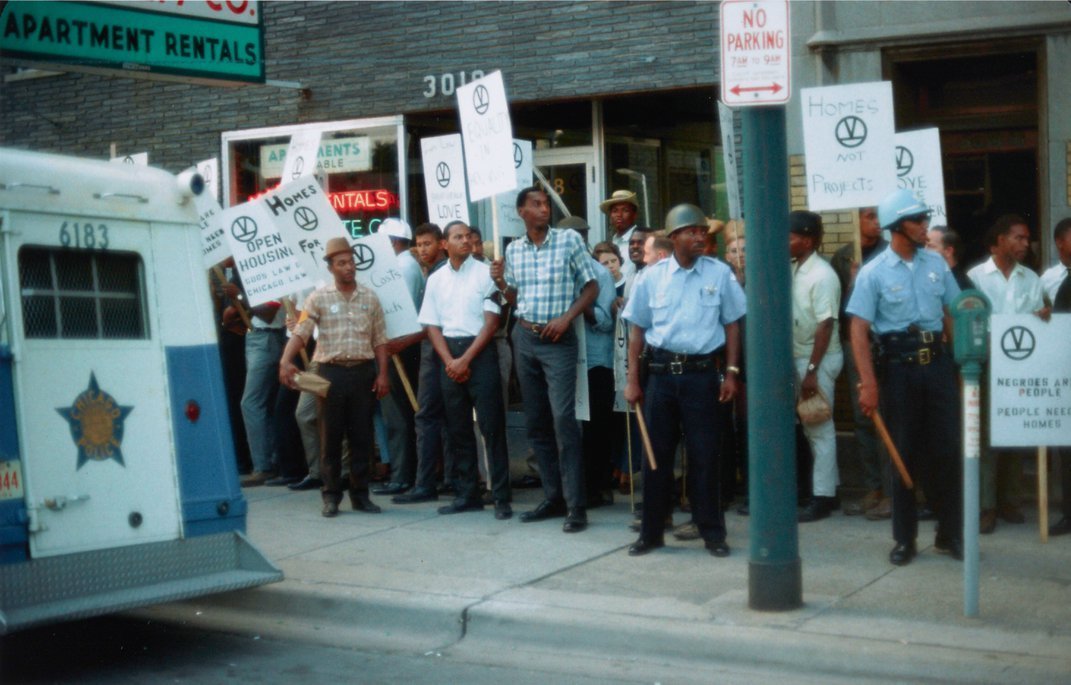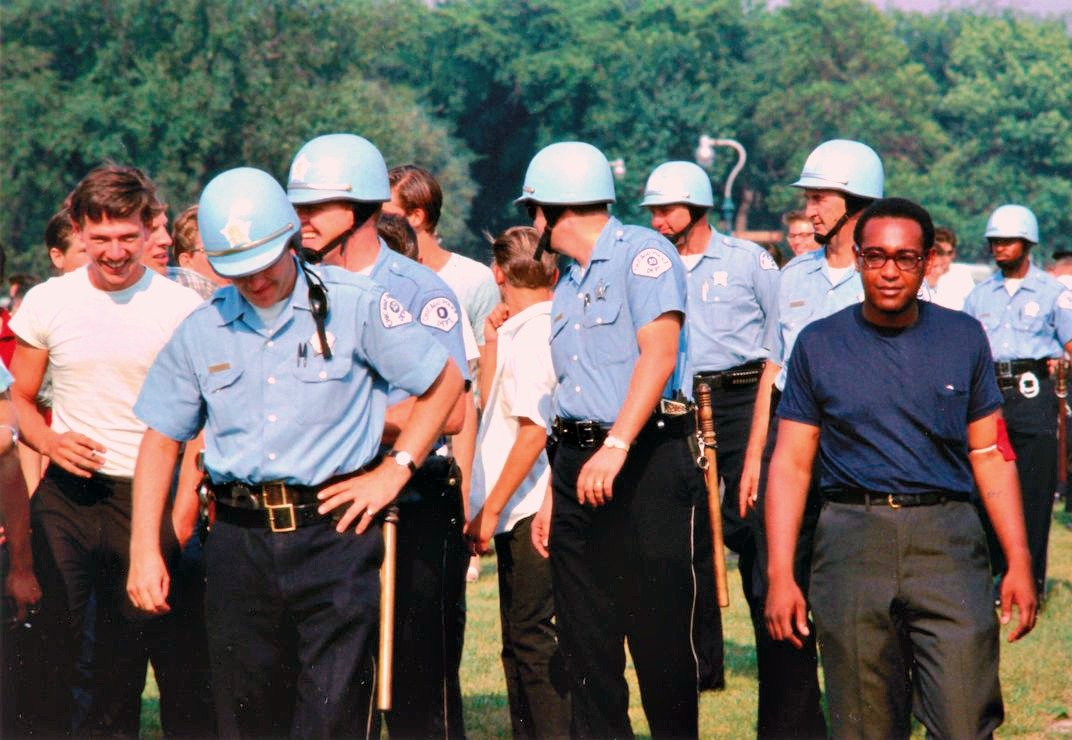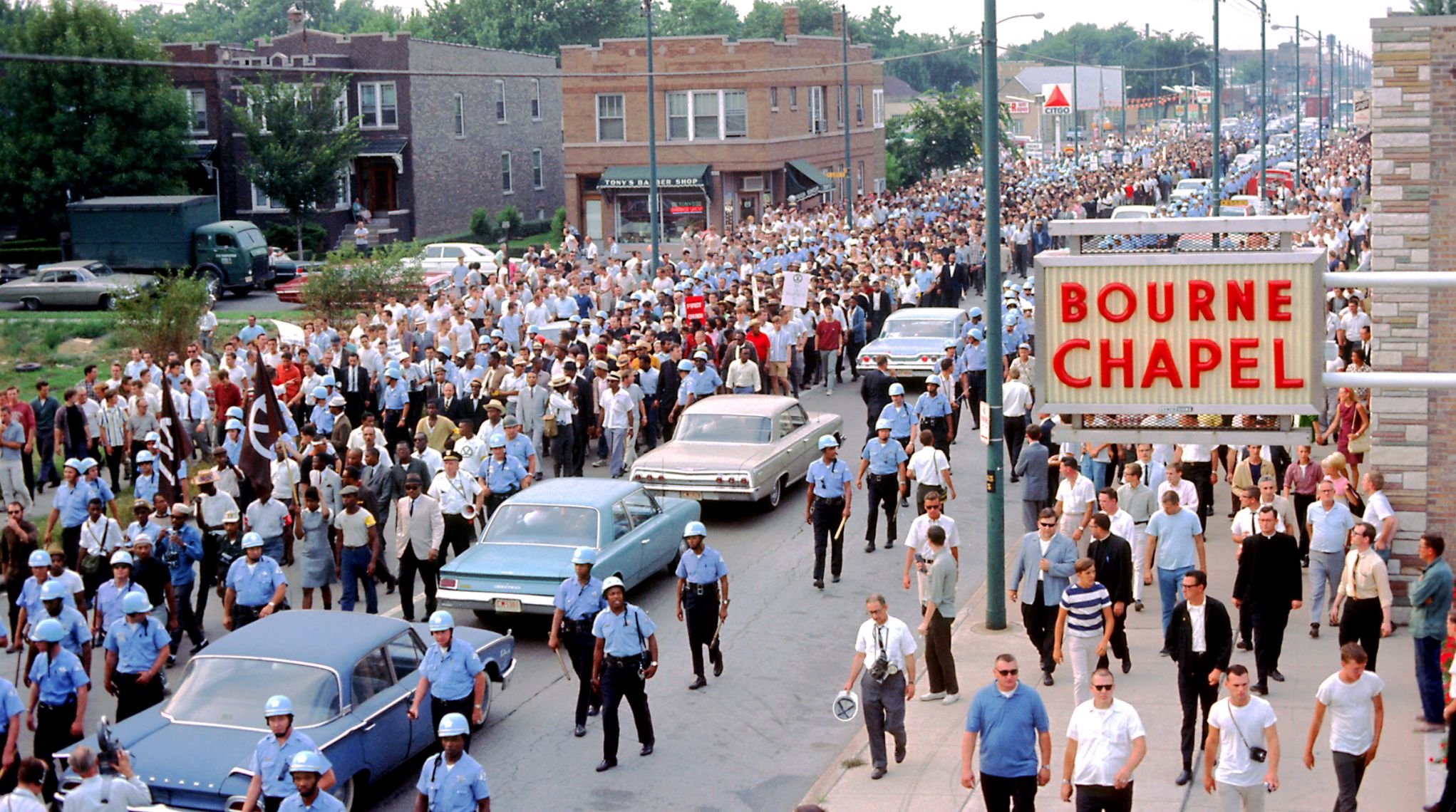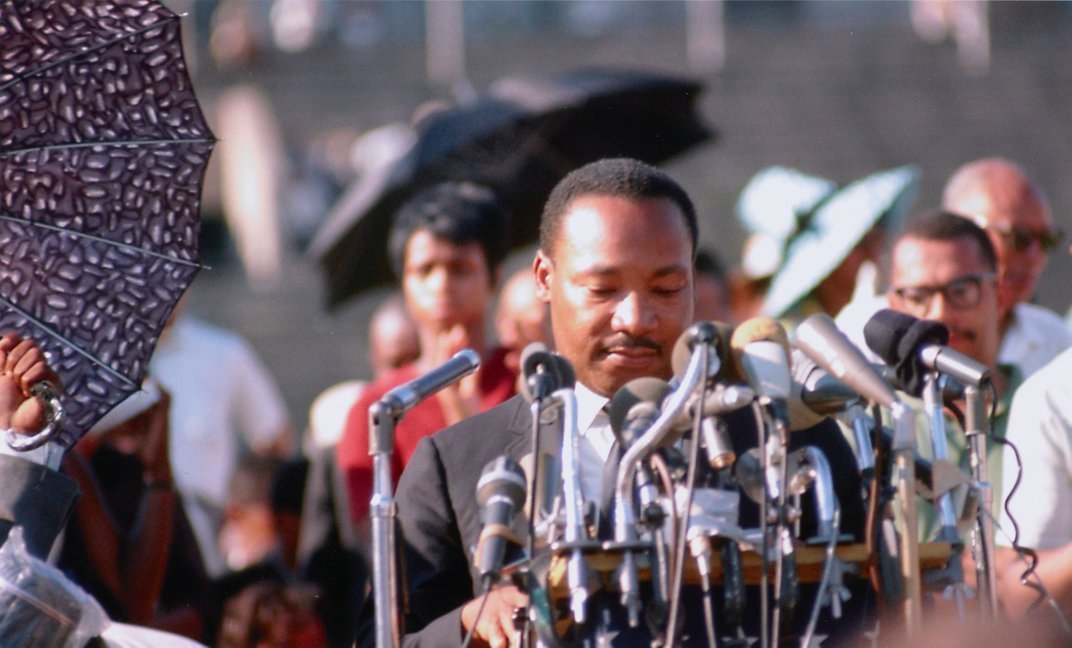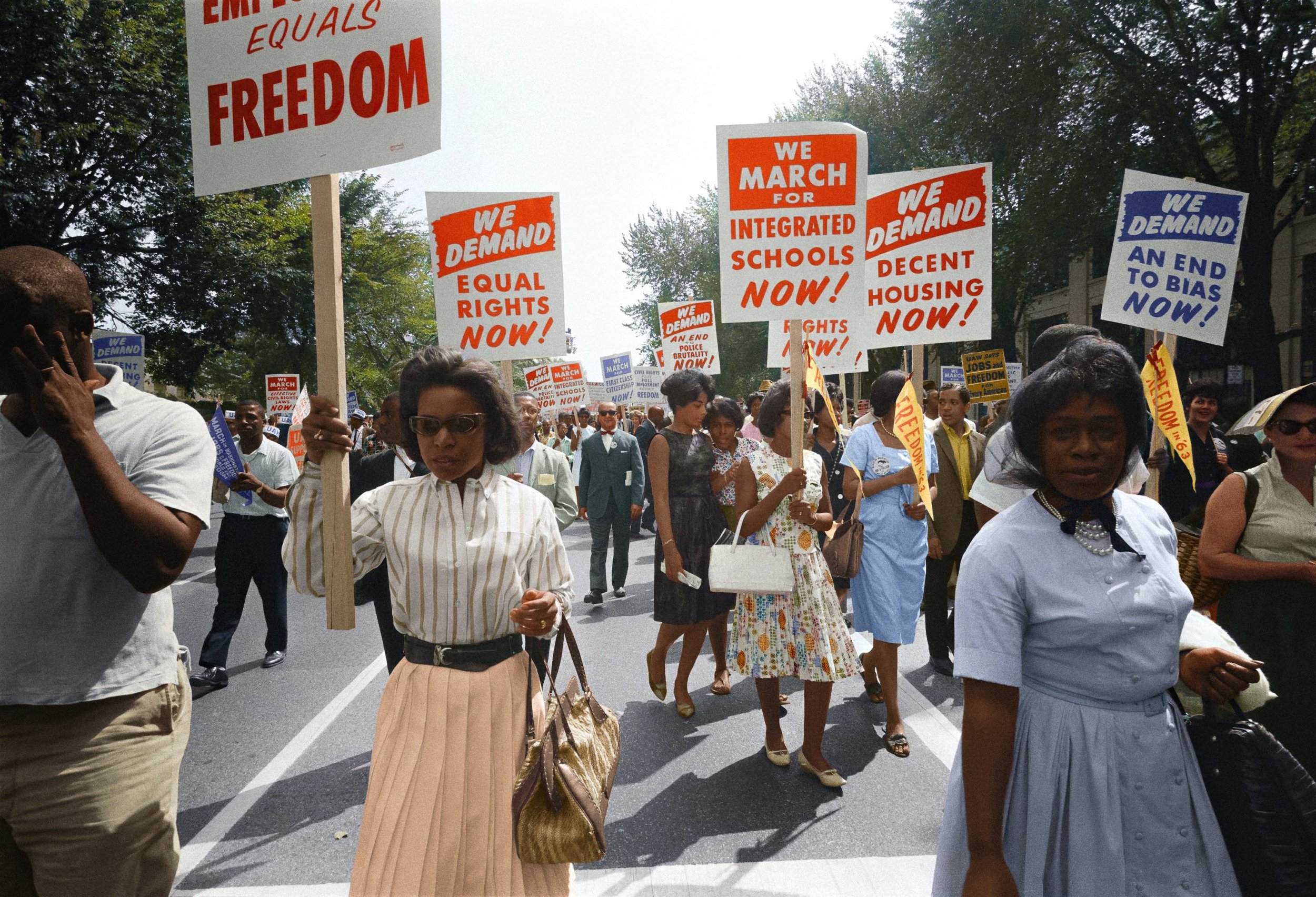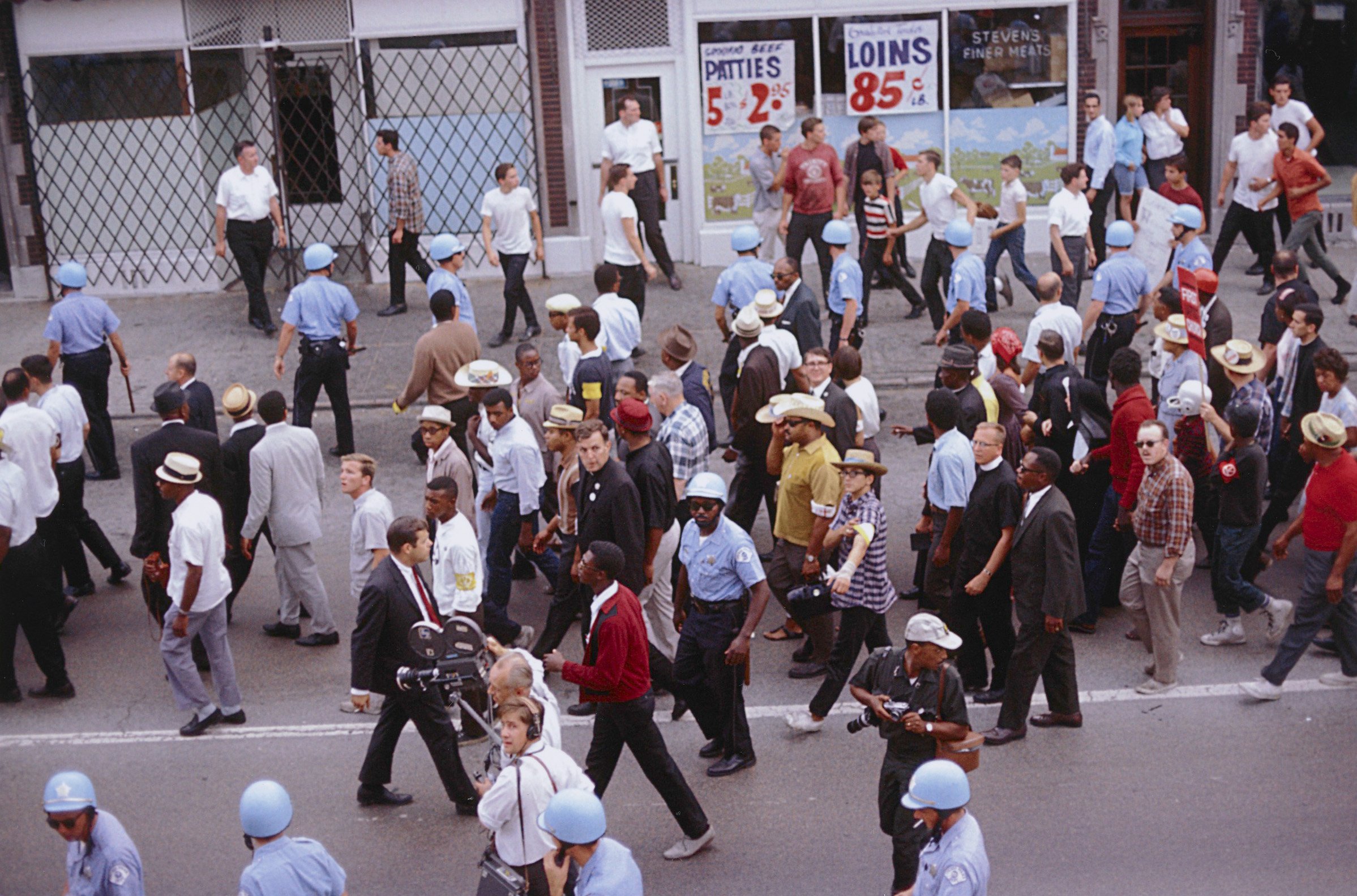King’s Journey
_
There is more to Martin Luther King Jr.’s legacy than nonviolence and civil rights legislation.
Towards the end of his life, MLK reached the limits of reformist strategies for change. By that point, he realized it would take a revolution to transform the United States.
But how did he get there?
As you read, reflect on what you learned about MLK in school…
King Goes North
In 1965, MLK along with Chicago’s civil rights leaders launched the Chicago Freedom Movement to protest segregated housing, unemployment, and poverty. King traveled from the South to Chicago to preach nonviolent resistance and build on the successes of the integration and voting rights campaigns in the South.
King agreed that if the mayor would address the movement’s demands, the Chicago Freedom Movement would stop the marches. This split up the Chicago Freedom Movement, and many who disagreed with King’s compromise continued with the marches. The Democrats of Chicago said they would meet the movement’s demands, yet nothing changed, and many felt that King’s nonviolent, reform-oriented strategy failed.
Reflect: How has your own upbringing shaped your political understanding and journey?
Reflect: In your experience how have city mayors and other politicians responded to demands for racial justice?
The Limits of Legislative Reform
Despite victories gained through legislative reforms like the 1964 Civil Rights Act and 1965 Voting Rights Act, little had changed for the majority of Black Americans as they still lived in poverty, segregation, and faced violent oppression. Faced with this liberal hypocrisy, King realized the limits and failures of legislative reform. King condemned “White America” for not wanting to give up political and economic power to fund social programs that would have relieved some of the oppressive conditions of Black Americans.
“White America was ready to demand that the Negro should be spared the lash of brutality and coarse degradation, but it had never been truly committed to helping him out of poverty, exploitation or all forms of discrimination…”
— Martin Luther King, “Where Do We Go From Here“ (1967)
Opposition to the Vietnam War
As the Vietnam War raged on
King calls for reparations for Black Americans and the Vietnamese, redistribution of wealth, a “radical revolution of values” and for the United States to fund social programs to end systemic oppression rather than continuing its wars in Vietnam and around the world.
“When profit motives and property rights are considered more important than people, the giant triplets of racism, extreme materialism, and militarism are incapable of being conquered”
— Martin Luther King, “Beyond Vietnam Speech” (1967)
Rest in Power
Exactly one year after the “Beyond Vietnam” speech the Reverend Dr. Martin Luther King Jr. was assassinated. He transitioned bitterly aware of the limits of reform-oriented strategies, and the need to revolutionize the United States by destroying its deep commitment to profits over people.
There is more to MLK than just the “nonviolent” message associated with “I Have a Dream.” In fact, King himself later called this speech “naive.” The MLK from the late 1960s understood the limits of using electoral politics and legislation to end systemic oppression. This MLK offered a radical alternative for poor and Black Americans, a theory of change rooted in power to the people instead of the political establishment.
-
Eyes on the Prize, Ep. 9 “Two Societies: 1965-1968”
Watch author James Baldwin talk to working-class Black people on a tour of San Francisco’s Hunters Point area, San Francisco's so-called "black ghetto," and through the city's Western Addition redevelopment project - described by Mr. Baldwin as a "Negro removal" project: https://www.youtube.com/watch?v=J9UG9nJ2E9U&t=1575s
King, Martin Luther. 1967. Where Do We Go from Here: Chaos or Community? Boston: Beacon Press.
King Jr, Martin Luther. "Letter from Birmingham jail." UC Davis L. Rev. 26 (1992): 835.
kinginstitute.stanford.edu/king-papers/documents/beyond-vietnam
Report: The U.S. Military Emits More CO2 Than Many Industrialized Nations


